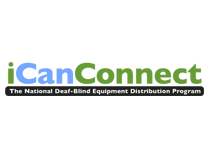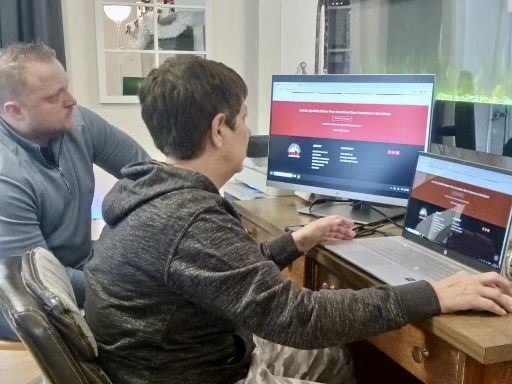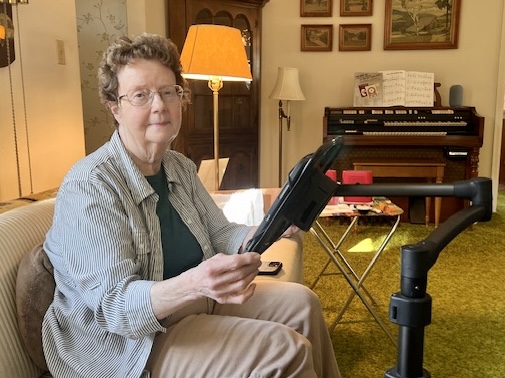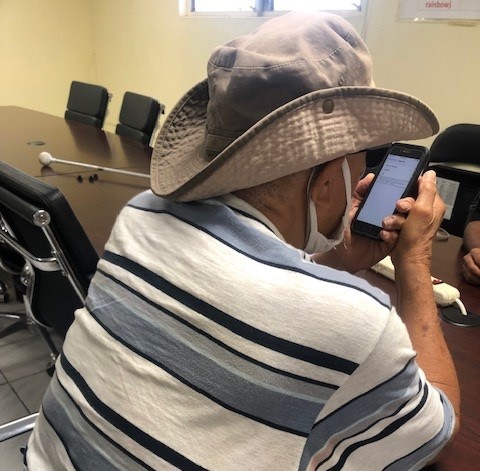“They think I’m cool!”
Eileen Liss of Huntley, Illinois is the hip, happening grandmother. The 67-year-old is now able to stay in touch with her busy children, grandchildren and friends by texting and using Facetime, thanks to the communications equipment she qualified for through The National Deaf-Blind Equipment Distribution Program, which is promoted as iCanConnect. Liss has extremely low hearing and vision, as a result of Usher Syndrome, but now, she says, she’s back in the 21st century.
“It’s given me a new outlook,” Liss chuckles. “I feel like I’m walking on a cloud.”
In November, Liss received a Da Vinci magnifier and an iPad through The Chicago Lighthouse for People Who Are Blind or Visually Impaired, which administers the iCanConnect Illinois program. Since then, she’s staying in contact with people and enjoying the little things she couldn’t before like looking at photographs and reading the retirement community newspaper.
Liss recalls the first time she used the Facetime app on her iPad to make a video call to her good friend, Linda. Liss held back tears; Linda was speechless. “My heart was pounding when we were talking,” Liss recalls.
“I, too, was holding back tears of joy,” remembers Joann Rushing, who manages iCanConnect through the Chicago Lighthouse and also serves as a trainer for the program. “Eileen said it was the first time she was able to make a call without struggle and anguish.”
Mandated by the Twenty-First Century Communications and Video Accessibility Act of 2010, the Federal Communications Commission (FCC) established the National Deaf-Blind Equipment Distribution Program to ensure every person with combined hearing and vision loss has access to modern distance communications tools and the training necessary to use them. The program offers a wide range of technology, devices such as iPhones and iPads, as well as specialized adaptive software, phone amplifiers and braille displays, at no cost to people who meet income guidelines.
Liss retired at 53 because of her vision loss. She says it was a hard to admit she could no longer perform her job as a programmer analyst. She felt left out, like she had lost touch, but her new communications tools have re-energized her.
“I’m like a kid in a candy store. I’m amazed by the technology. I feel like I’ve got a new lease on life.”
iCanConnect is changing lives across the United States. The program is available in all 50 states, the District of Columbia, Puerto Rico and the U.S. Virgin Islands. You can learn more at http://www.iCanConnect.org: click on “State Partners” to find each state’s contacts. The website accommodates users with low vision, people who use screen readers and features video that is both audio-described and closed captioned. Information about iCanConnect is also available by calling 1-800.825-4595|TTY 1-888-320-2656.



